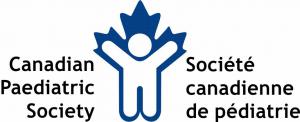
CAS: Lack of Evidence in Study that Epidural Pain Relief During Labour Causes Autism Spectrum Disorder
Canadian Anesthesiologists’ Society: Lack of Evidence in Study that Epidural Pain Relief During Labour Causes Autism Spectrum Disorder
Annually, millions of women worldwide give birth and benefit from epidural labour pain relief without complications. In Canada, over 360 000 women gave birth and over 60% received epidural labour pain relief in 2018-19. (1)
The Canadian Anesthesiologists’ Society (CAS) representing over 2,500 anesthesiologists, along with the CAS Obstetric Section, the Canadian Pediatric Anesthesia Society (CPAS), a CAS sub-section, and the Society for Obstetrics and Gynecology of Canada (SOGC), raise concerns with the findings of the study Association Between Epidural Analgesia During Labor and Risk of Autism Spectrum Disorders in Offspring, published on October 12th in JAMA Pediatrics. (2) Those authors present a retrospective longitudinal database study of 147,895 children in a single American health system and conclude that there is an association between epidural pain relief in women delivering vaginally and subsequent autism spectrum disorder in their children. However, the true relationship between epidural pain relief and autism spectrum disorder has not been ascertained due to multiple methodological limitations in the study.
The two study groups, women who received epidural pain relief and those who did not, were different in many ways and did not have the same health issues, socioeconomic status, or child characteristics. In addition, the details on pregnancy and delivery complications of these women, as well as other possible causes for autism, were not addressed in the article. No information is provided regarding the type and dose of the epidural medication administered. This article suggests potential danger associated with epidural analgesia without providing causal evidence. This could lead to potential harm and unnecessary guilt among pregnant women if they decide to opt for epidural pain relief, or in those whom epidural placement may be medically indicated to ensure the safety of both mother and baby.
The CAS, CPAS and SOGC reassure women, families, and health care providers that an association between labour epidural pain relief and autism spectrum disorder does not imply causation. Only randomized-controlled trials and their meta-analyses can confidently determine causation. Epidural labour analgesia is the most effective form of labour pain relief and remains the gold standard.
Over the last decade, research and innovative obstetric anesthesia care has led to advances that provide significant safety and other health benefits for women and babies. The desired outcome for labouring mothers is a positive experience for her and her family. The goal is to maintain the health of both mother and baby by preventing complications and allowing a rapid response to emergencies. Women contemplating epidural labour pain relief should consider the highest-level evidence: labour pain can be controlled, and satisfaction improved, with no increase in caesarean delivery rates. (3)
The CAS, CPAS and SOGC agree with the UK and USA national specialty societies’ position that support a woman’s decision to choose epidural pain relief. (4),(5) This decision should take into consideration their personal needs, medical requirements, and cultural preferences, using the best evidence in careful discussion with their healthcare providers and anesthesiologists. Therefore, the recent study in JAMA Pediatrics should not alter current Canadian anesthetic care offered to obstetric patients.
For further information please contact CAS at president@cas.ca.
Dr Dolores McKeen
CAS President
Dr Valerie Zaphiratos
President, CAS Obstetric Section
References:
1. Canadian Institute for Health Information (CIHI)
https://apps.cihi.ca/mstrapp/asp/Main.aspx?Server=apmstrextprd_i&project=Quick%20Stats&uid=pce_pub_en&pwd=&evt=2048001&visualizationMode=0&documentID=029DB170438205AEBCC75B8673CCE822
2. Qiu C, Lin JC, Shi JM, Chow T, Desai VN, Nguyen VT, Riewerts RJ, Feldman RK, Segal S, Xiang AH. Association Between Epidural Analgesia During Labor and Risk of Autism Spectrum Disorders in Offspring. JAMA Pediatr 2020 Oct 12. doi: 10.1001/jamapediatrics.2020.3231
3. Anim-Somuah M, Smyth RMD, Cyna AM, Cuthbert A. Epidural versus non-epidural or no analgesia for pain management in labour. Cochrane Database of Systematic Reviews 2018, Issue 5. Art. No.: CD000331.
4. Royal College of Anaesthetists (RCoA)
https://rcoa.ac.uk/news/no-evidence-labour-epidurals-cause-autism
5. American Society of Anesthetists (ASA)
https://soap.org/wp-content/uploads/2020/10/JAMAPeds_Epidurals_SOAP_ASA_SPA_ACOG_SMFM_Media_Response_101220.pdf
About Canadian Anesthesiologists' Society
The Canadian Anesthesiologists' Society (CAS) is the national specialty society for anesthesiology in Canada. The CAS was founded in 1943 as a not-for-profit, voluntary organization and is guided by its vision of transformative patient care, with its mission to serve members and advance the specialty through leadership, advocacy, education, and research. CAS represents 3,000 members (anesthesiologists, GP anesthetists, residents, Anesthesia Assistants, etc.) across Canada and around the world.
About Society of Obstetricians and Gynaecologists of Canada
The SOGC is one of Canada’s oldest national specialty organizations. Established in 1944, the Society’s mission is to promote excellence in the practice of obstetrics and gynaecology and to advance the health of women through leadership, advocacy, collaboration, and education.
About Canadian Paediatric Society
The Canadian Paediatric Society is the national association of paediatricians, committed to working together to advance the health of children and youth by nurturing excellence in health care, advocacy, education, research and support of its membership.
CAS Twitter: @CASUpdate
SOGC Twitter: @SOGCorg
CPAS Twitter: @CanPaedSociety
Amanda Cormier
Canadian Anesthesiologists' Society
+1 416-480-0602
email us here
Visit us on social media:
Twitter
EIN Presswire does not exercise editorial control over third-party content provided, uploaded, published, or distributed by users of EIN Presswire. We are a distributor, not a publisher, of 3rd party content. Such content may contain the views, opinions, statements, offers, and other material of the respective users, suppliers, participants, or authors.




